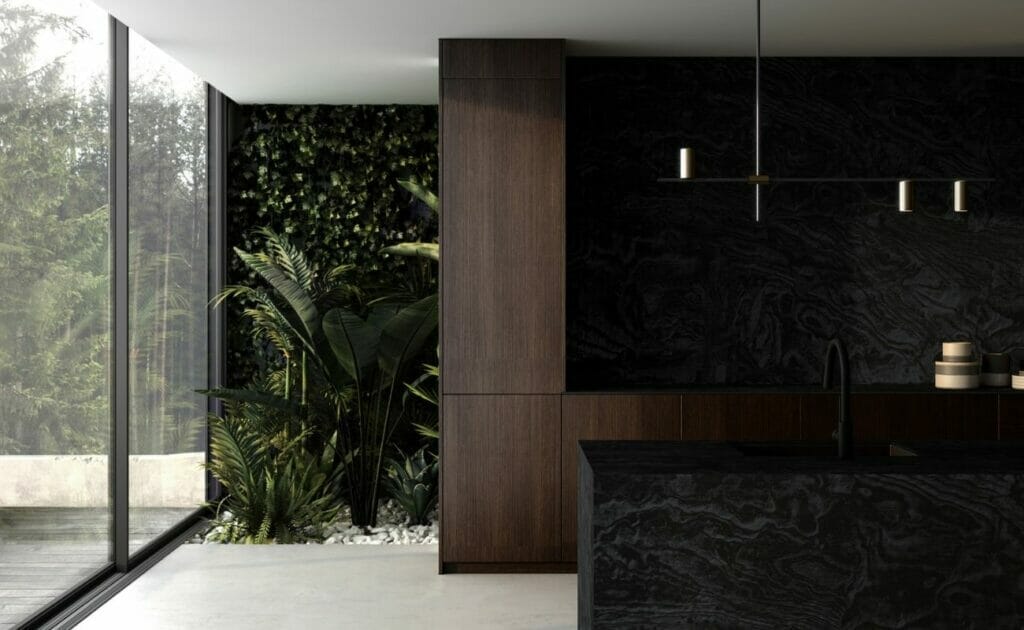Many consider natural stone like, say, marble, to be the pinnacle of luxury in a kitchen, or even a bathroom remodelling exercise. But those who have actually had some experience redoing their home surfaces know that there are downsides to marble, such as wear and tear, scratches and staining due to its porous nature.
https://www.youtube.com/watch?v=vuilamdV5-M
In today’s era of minimalism in the kitchen and everywhere else at home, Dekton is perhaps the ultimate aesthetic solution. Its customisability in style and finish allows for that continuous and seamless look that comes from using the same material throughout one’s kitchen, and even carrying into other parts of the home too.
Dekton was created by Spanish company Cosentino, an international and family-owned establishment that produces and distributes innovative high-quality surfaces for architecture and design. In 2016, the company even obtained an Environmental Product Declaration for the material. Dekton is composed of a mixture of raw, mined materials, such as quartz, and is formed using the Sinterized Particle Technology (TSP) process, an innovative, ultra-compaction process. This is where the stones are mixed at an extremely high heat and pressure. It is a sophisticated mixture of raw materials used to make glass, and next-generation porcelain and quartz surfaces.
The final result is a very compact structure that is near indestructible. It boasts superior technical properties, such as resistance to UV rays, scratches, stains and thermal shock, and has very low water absorption. Dekton is also able to recreate any type of material with a high level of quality. This is probably the main reason why some of the most striking architectural creations in the recent past have benefitted greatly from the material’s structural integrity.
The Rafa Nadal Academy in Majorca, Spain, for example, has become a true showcase for Dekton surfaces. Here, Cosentino has installed more than 40,000 sq m of Dekton in all thicknesses and sizes, and for different applications such as cladding, floors, countertops, stairs and baseboards, especially highlighting its use on the facades of the two main buildings of the complex, pools and spa area.
This innovative material has also been used in diverse architectonic and design projects throughout the world, like the residential building Valdebebas 127 in Madrid, the 4* and 5* Hipotels hotels in Palma de Mallorca, the Archway Tower in London, Le Méridien in Yilan, Taiwan, the Cap Ferrat building in Rio de Janeiro, and Thomas Keller’s The French Laundry restaurant in California.
The good news for home owners is that Dekton isn’t limited to the kitchen. It can also be used in bathrooms or on cabinets, for walls or flooring. In fact, Dekton has also been used creatively as outdoor cladding and even as runway flooring at the last edition of the Madrid Fashion Week.
The carbon neutral surface is also a showcase of Cosentino’s good practices in terms of sustainability and environmental management. The company is extremely proud that carbon neutrality has been achieved for the entire life cycle of the product, from the extraction of the raw material and the calculation of the direct and indirect emissions from its production cycle, and those derived from its use, to the end of the product’s life.
And with Earth Day celebrations just around the corner in April, perhaps the time is ripe for you to kick-start that delayed home improvement project, especially when you have this gorgeous and eco-friendly solution to work with.



